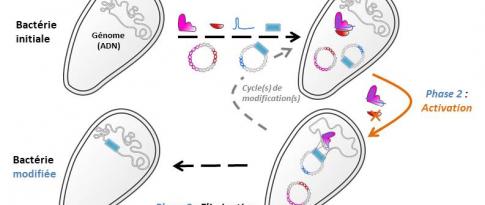10.07.2020
15 minutes of reading
Research and training underpin the relevance and originality of all the innovations developed at IFPEN. Key actors in the entire process, some of our researchers are awarded a national accreditation to supervise research (HDR), France’s highest university qualification. HDR researchers are recognized for their high level of scientific training and expertise, the originality of their scientific approach, and their capacity to develop and master a research strategy as well as supervise PhD theses. Beyond the role of indicator of scientific excellence, the number of HDRs reflects the quality of supervision for our PhD students, and the balanced and constructive nature of exchanges with our academic partners.
This issue highlights major results obtained by some of our researchers who have recently been awarded this title. From experimentation to modeling, covering multiple scales of time and space, the range of topics investigated and disciplines concerned is vast, reflecting the broad variety of activities at IFPEN.
A common thread runs through all this research: a coherent and long-term scientific approach that guarantees the quality and relevance of our results within the fundamental research-applied research continuum.
I hope you will enjoy reading this issue.
Olga Vizika-Kavvadias,
Scientific Director
Characterization and modeling of the facies(a)-eogenesis(b) couple, initial state of carbonate reservoirs (HDR 2017)
Carbonate reservoirs present significant heterogeneities (in terms of types and scales) associated with the biological origin of sedimentsc, as well as t
Multiphase reactive flow simulation: developments and applications in the field of combustion (HDR 2015)
The scientific field concerned by my HDR research is the 3D numerical modeling of two-phase combustion, combining research on turbulent combustion and the preparation of the reactive mixture.
Hydrolysis of lignocellulosic biomass: study of enzyme-substrate interactions (HDR 2015)
The scope of my HDR covered ten years of research at IFPEN within the context of the development of Futurol™, a process aimed at producing 2nd-generation bioethanol from lignocellu
The contribution of image processing to catalyst performance optimization (HDR 2017)
My HDR research was aimed at optimizing catalyst performance using image processing, automating the analyses and improving the quality of the information extracted from data.
Study of packings for natural gas treatment and CO2 capture columns (HDR 2019)
Employed in certain treatment equipment, such as industrial gas purification columns, structured packings are ordered stacks of corrugated metal sheets that promote contact between the gas and a fl
Descriptors of oxygenated matrices for lignocellulosic biomass conversion (HDR 2017)
IFPEN offers a broad variety of processes and catalysts for the production of biofuels and bio-based molecules.












